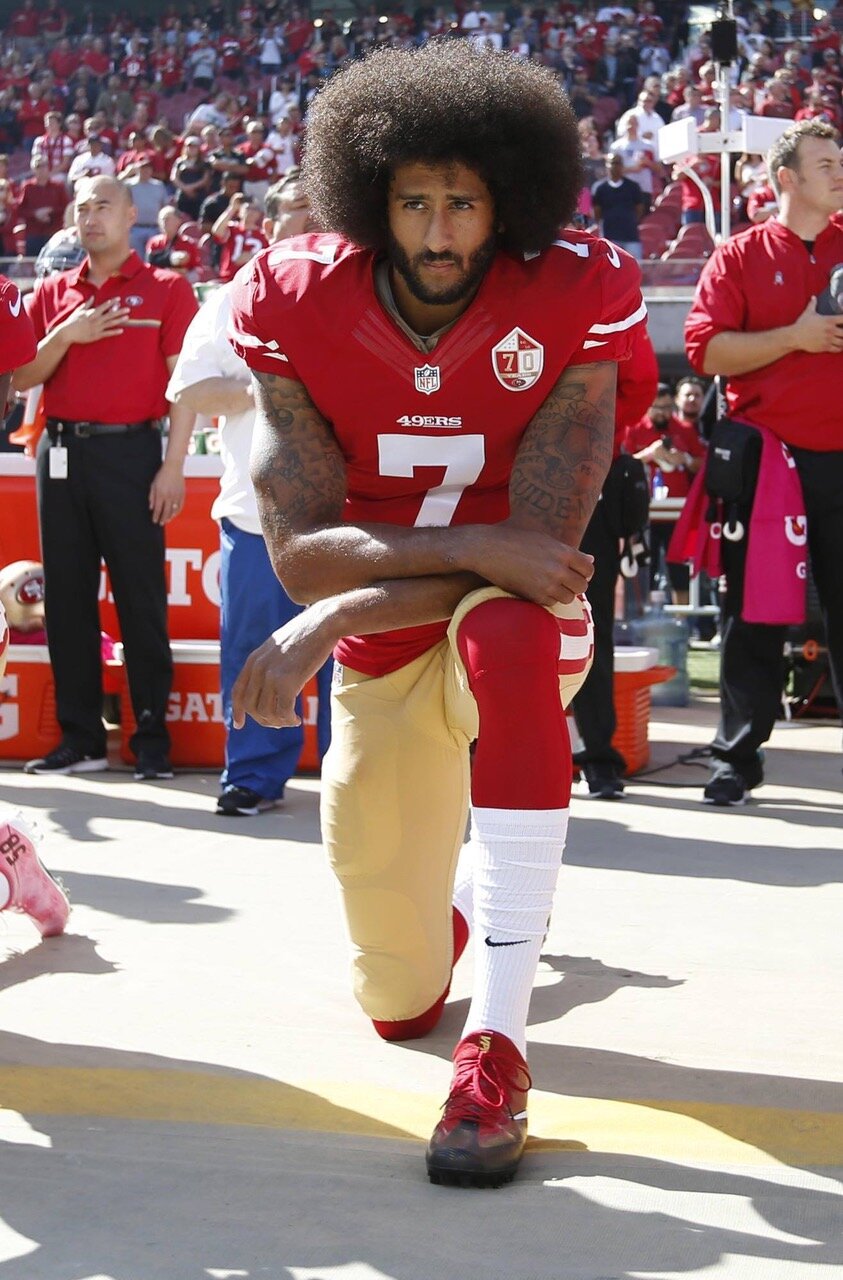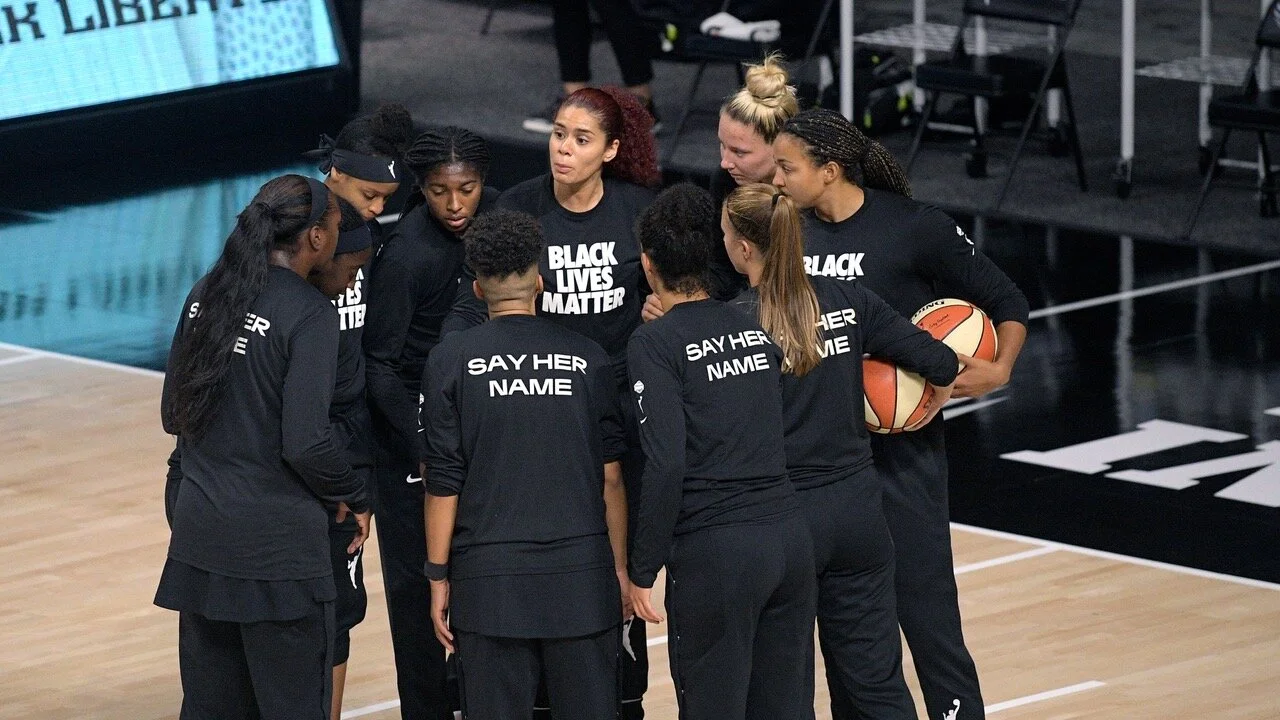Pro athletes exercise their muscle in the pursuit of social justice
By: Roger S. Glass
In an impressive display of unity, players from the NBA, WNBA, NFL and Major League Baseball recently walked off the court and field to protest racial and social injustice. They were joined by other professional athletes, including tennis star Naomi Osaka, who pulled out of a semifinal match in order to add her voice to the never-ending struggle for justice.
The show of solidarity by this diverse group of pro athletes is a testament to Colin Kaepernick and the sacrifices he made in order to raise awareness of police brutality and the senseless killing of unarmed Black people. While he never mentioned Kaepernick, NFL commissioner Roger Goodell admitted that the NFL was wrong for not taking seriously the concerns of Kap and other players. “We, the NFL, condemn racism and the systematic oppression of Black People. We, the NFL, admit we were wrong for not listening to NFL players earlier and encourage all to speak out and peacefully protest. We, the NFL, believe Black Lives Matter,” Goodell said in a video released in June.
This is not the first time professional athletes have used their immense platforms on behalf of social justice. In 1967, a then-25 year-old Muhammad Ali refused to be drafted into the U.S. Army and sent to Vietnam, saying that as a Black Muslim he was a conscientious objector.
“My conscience won’t let me go shoot my brother, or some darker people, or some poor hungry people in the mud for big powerful America,” Ali said at the time. “And shoot them for what? They never called me nigger, they never lynched me, they didn’t put no dogs on me, they didn’t rob me of my nationality, rape and kill my mother and father. … Shoot them for what? How can I shoot them poor people? Just take me to jail.”
In 1968, basketball superstar Kareem Abdul Jabbar boycotted the Summer Olympics to protest racism against African-Americans in the United States. At those same Olympics, Tommy Smith and John Carlos famously used the Black Power salute as they stood on the podium accepting their Gold and Silver medals, respectively.
What is—or should be—the role of today’s professional athletes in the social justice movement? Well, it depends on whom you ask.
Lee Saunders, president of the American Federation of State, County and Municipal Employees, had this to say to ESPN: “Athletes are realizing, ‘We've got some juice,’ and the most effective way to use it is to bring people in the community together on important issues. If an NBA player called for a meeting on the local level and invited state legislators, the mayor, city council members, school board or even members of Congress when they're back home, I guarantee you they'd get a crowd and those elected officials will show up.”
Currently, policing and criminal justice are major concerns. But there are also economic and health-related issues, some of them longstanding and some of them arising from the impact of the Covid-19 pandemic.
“Players must demand changes from the top. They should use their leverage so that when owners want new arenas in partnership with local governments, they can go back to those same governments and say ‘We want jobs and opportunities for these kids in the community, who struggle to buy the shoes, who can't afford tickets. We want to transform these communities. Give minority businesses contracts to sell their goods. Give students internships so they can learn marketing’," former Democratic National Committee chair Donna Brazile told ESPN.
NBA players and the league say they want to do more than create awareness. The league and its players association recently released the following plans:
The NBA and its players have agreed to immediately establish a social justice coalition, with representatives from players, coaches and governors, that will be focused on a broad range of issues, including increasing access to voting, promoting civic engagement, and advocating for meaningful police and criminal justice reform.
In every city where the league franchise owns and controls the arena property, team governors will continue to work with local elections officials to convert the facility into a voting location for the 2020 general election to allow for a safe in-person voting option for communities vulnerable to COVID. If a deadline has passed, team governors will work with local elections officials to find another election-related use for the facility, including but not limited to voter registration and ballot receiving boards.
The league will work with the players and our network partners to create and include advertising spots in each NBA playoff game dedicated to promoting greater civic engagement in national and local elections and raising awareness around voter access and opportunity.
The pro basketball league also committed to creating an NBA Foundation focused on economic empowerment in the Black community.
Sports and professional athletes have an outsized influence on our society. And some athletes appear ready to use that leverage to make a positive difference in people’s lives, even if that means withholding their services in the pursuit of social justice.
Hopefully, this is just the beginning.



